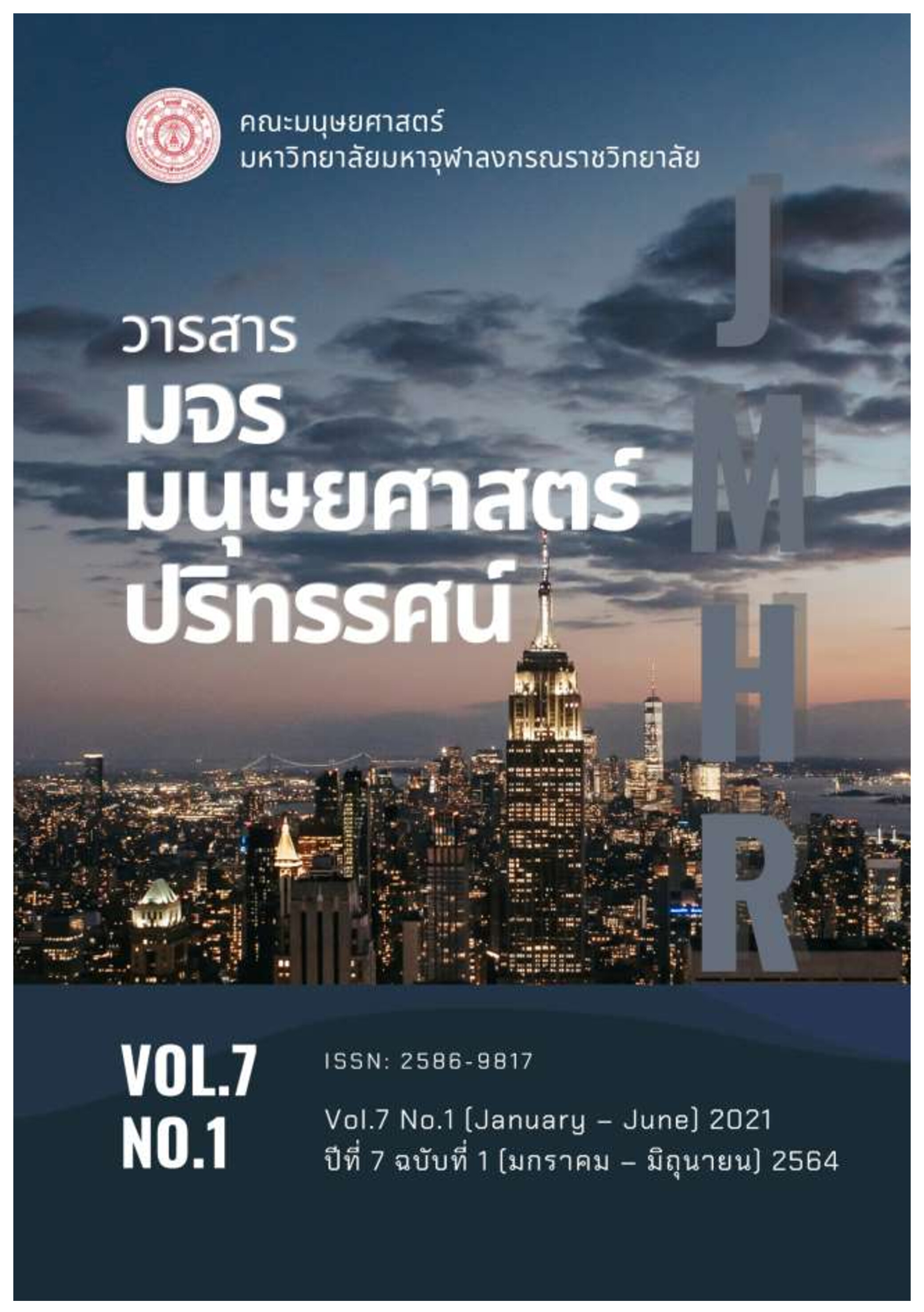ประสบการณ์ของนักจิตวิทยาการปรึกษาแนวพุทธกับการทำงานกับผู้มาปรึกษาต่างศาสนา
คำสำคัญ:
นักจิตวิทยาการปรึกษาแนวพุทธ, ผู้มาปรึกษาต่างศาสนา, ประสบการณ์, การวิเคราะห์เชิงปรากฏการณ์วิทยาแบบตีความบทคัดย่อ
การวิจัยนี้มีวัตถุประสงค์เพื่อศึกษาประสบการณ์ของนักจิตวิทยาการปรึกษาแนวพุทธในการให้บริการปรึกษากับผู้มาปรึกษาต่างศาสนา โดยใช้ระเบียบวิธีวิจัยเชิงคุณภาพทางด้านจิตวิทยาที่เรียกว่า การวิเคราะห์เชิงปรากฏการณ์วิทยาแบบตีความ (IPA) และใช้การสัมภาษณ์เชิงลึกแบบกึ่งโครงสร้างกับนักจิตวิทยาการปรึกษาแนวพุทธที่มีประสบการณ์ในการทำงานกับผู้มาปรึกษาต่างศาสนาจำนวน 5 คน
ผลการวิจัยพบว่า ประสบการณ์ของนักจิตวิทยาการปรึกษาแนวพุทธในการทำงานกับผู้มาปรึกษาต่างศาสนาประกอบด้วย 3 ใจความสำคัญหลัก ได้แก่ 1) จิตวิทยาการปรึกษาแนวพุทธสามารถทำงานกับผู้มาปรึกษาต่างศาสนาได้ 2) ความแตกต่างทางศาสนาเป็นความท้าทายในการทำงานกับผู้มาปรึกษาต่างศาสนา และ 3) การทำงานกับผู้มาปรึกษาต่างศาสนานำไปสู่ใจที่เปิดกว้าง ผลการวิจัยนี้แสดงให้เห็นว่าการทำงานกับผู้มาปรึกษาต่างศาสนาแม้จะมีความท้าทาย แต่ก็เป็นไปได้และมีประโยชน์ต่อการพัฒนาศักยภาพของนักจิตวิทยาการปรึกษาแนวพุทธในการทำงานกับความแตกต่างระหว่างบุคคล ผลการวิจัยดังกล่าวนำไปสู่ข้อเสนอแนะที่ให้แนวทางในการก้าวผ่านความท้าทายในการให้บริการปรึกษากับผู้มาปรึกษาที่มีความแตกต่างด้านความเชื่อทางศาสนาต่อไป
เอกสารอ้างอิง
ฉัตรสุมาลย์ ศรีทองอุ่น. (2554). ประสบการณ์ของนักจิตวิทยาการปรึกษาแนวพุทธ : การดำเนินชีวิตและการงานบนฐานอริยสัจ 4 (วิทยานิพนธ์ปริญญามหาบัณฑิต สาขาจิตวิทยาการปรึกษา). จุฬาลงกรณ์มหาวิทยาลัย, กรุงเทพมหานคร.
ชมพูนุท ศรีจันทร์นิล. (2560). การวิเคราะห์เชิงปรากฏการณ์วิทยาแบบตีความ: ระเบียบวิธีวิจัยเชิงคุณภาพสำหรับการวิจัทางด้านจิตวิทยา. วารสารศึกษาศาสตร์ 28(3), 1-13.
“__________”. (2562). การวิเคราะห์เชิงปรากฏการณ์วิทยาแบบตีความ: เกณฑ์การประเมินคุณภาพ. มนุษยศาสตร์สาร 20(1), 189-213.
ฐิติกาญจน์ บุญรักษา อินทาปัจ. (2561). การศึกษากรอบมโนทัศน์และพัฒนาเครื่องมือประเมินสมรรถนะทางพหุวัฒนธรรมในการปรึกษาเชิงจิตวิทยา: การวิจัยแบบผสานวิธี. (ปริญญาศิลปศาสตรดุษฎีบัณฑิต). จุฬาลงกรณ์มหาวิทยาลัย. กรุงเทพมหานคร.
เนลสัน โจนส์, อาร์. (2552). คู่มือให้คำปรึกษาและช่วยเหลือผู้อื่น ทักษะพื้นฐานในการเป็นผู้ให้คำปรึกษา และคู่มือปฏิบัติการ [Basic Counselling Skills: A Helper's Manual] (นวลศิริ เปาโรหิตย์ และเมธินินท์ ภิญญูชน, ผู้แปล). นนทบุรี: บี มีเดีย.
สำนักงานสถิติแห่งชาติ. (2561). ผลสำรวจสภาวะทางสังคม วัฒนธรรม และสุขภาพจิต ปี 2561. สืบค้น 27 พฤษภาคม 2564, จาก http://www.nso.go.th/sites/2014/Pages/News/2561/N21-09-61-1.aspx
Aga Mohd Jaladin, R. (2013). Barriers and challenges in the practice of multicultural counselling in Malaysia: A qualitative interview study. Counselling Psychology Quarterly, 26(2), 174-189.
American Counseling Association. (2014). ACA Code of Ethics. Retrieved May 27, 2021, from https://www.counseling.org/Resources/aca-code-of-ethics.pdf
American Psychological Association. (2017). Ethical principles of psychologists and code of conduct (2002, amended effective June 1, 2010, and January 1, 2017). United States of America: American Psychological Association.
Baharudin, D. F. (2012, January). Perception and understanding of counselor trainees on multicultural counseling in Malaysia. Proceedings of Asia Pacific RIM International Counseling Conference. Hong Kong
Jennings, L., Gulden, A., Oien, M., D'Rozario, V., Goh, M., & Skovholt, T. M. (2012). Multicultural knowledge and skills of Singaporean master therapists. Journal of Asia Pacific Counseling, 2(2), 133-146.
Tao, K. W., Owen, J., Pace, B. T., & Imel, Z. E. (2015). A meta-analysis of multicultural competencies and psychotherapy process and outcome. Journal of Counseling Psychology, 62, 337–350.
Worthington, R. L., Soth-McNett, A. M., & Moreno, M. V. (2007). Multicultural counseling competencies research: A 20-year content analysis. Journal of Counseling Psychology, 54, 351–361.






